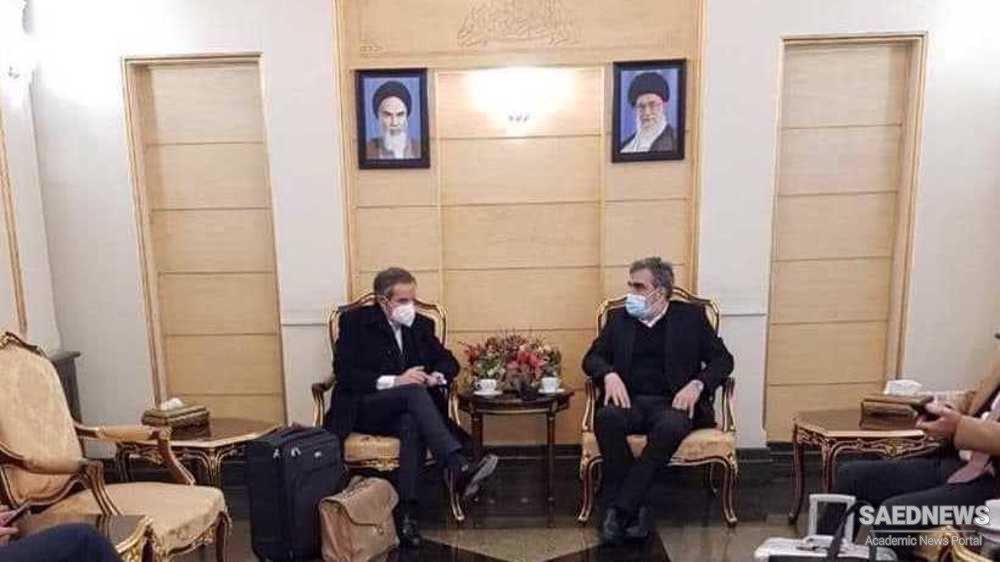Tehran, SAEDNEWS: Heading a delegation, Rafael Grossi arrived early on Saturday and was welcomed by Behrouz Kamalvandi, the spokesman of the Atomic Energy Organization of Iran (AEOI).
"It is expected that general issues between us and the agency will be reviewed regarding how to pursue various matters in the future. God willing, there will be an understanding," AEOI spokesman Behrouz Kamlavandi said.
Grossi is also expected to meet with AEOI head Mohammad Eslami and Iran’s Foreign Minister Hossein Amir-Abdollahian.
The visit comes as talks between Iran and the P4+1 group of countries aimed at reviving the 2015 deal, officially known as the Joint Comprehensive Plan of Action (JCPOA), continue in Vienna.
In a post on his Twitter account, Russia’s Permanent Representative to International Organizations in Vienna Mikhail Ulyanov wished Grossi “fruitful and successful” discussions with Iranian officials on outstanding safeguards issues.
Prior to his trip to Tehran, the IAEA chief tweeted that his visit takes place at “a critical time but a positive outcome for everyone is possible.”
The Vienna talks began last April on the assumption that the US, under the Joe Biden administration, is willing to repeal the so-called maximum pressure policy pursued by former president Donald Trump.
Tehran says it won’t settle for anything less than the removal of all US sanctions in a verifiable manner. It also wants guarantees that Washington would not abandon the agreement again.
The United States left the JCPOA in 2018 and began to implement what it called the “maximum pressure” campaign of sanctions against the Islamic Republic, depriving the country of the economic benefits of the agreement, including the removal of sanctions, for which Iran had agreed to certain caps on its nuclear activities.
In the meantime, the other parties to the deal, in particular France, Britain and Germany, only paid lip service to safeguarding Iran’s economic dividends as promised under the JCPOA, prompting Iran – after an entire year of “strategic patience” – to reduce its nuclear obligations in a legal move under the deal (Source: PRESSTV).


 Amirabdollahian: Overall agreement to resolve technical problems reached in talks with Grossi
Amirabdollahian: Overall agreement to resolve technical problems reached in talks with Grossi














































